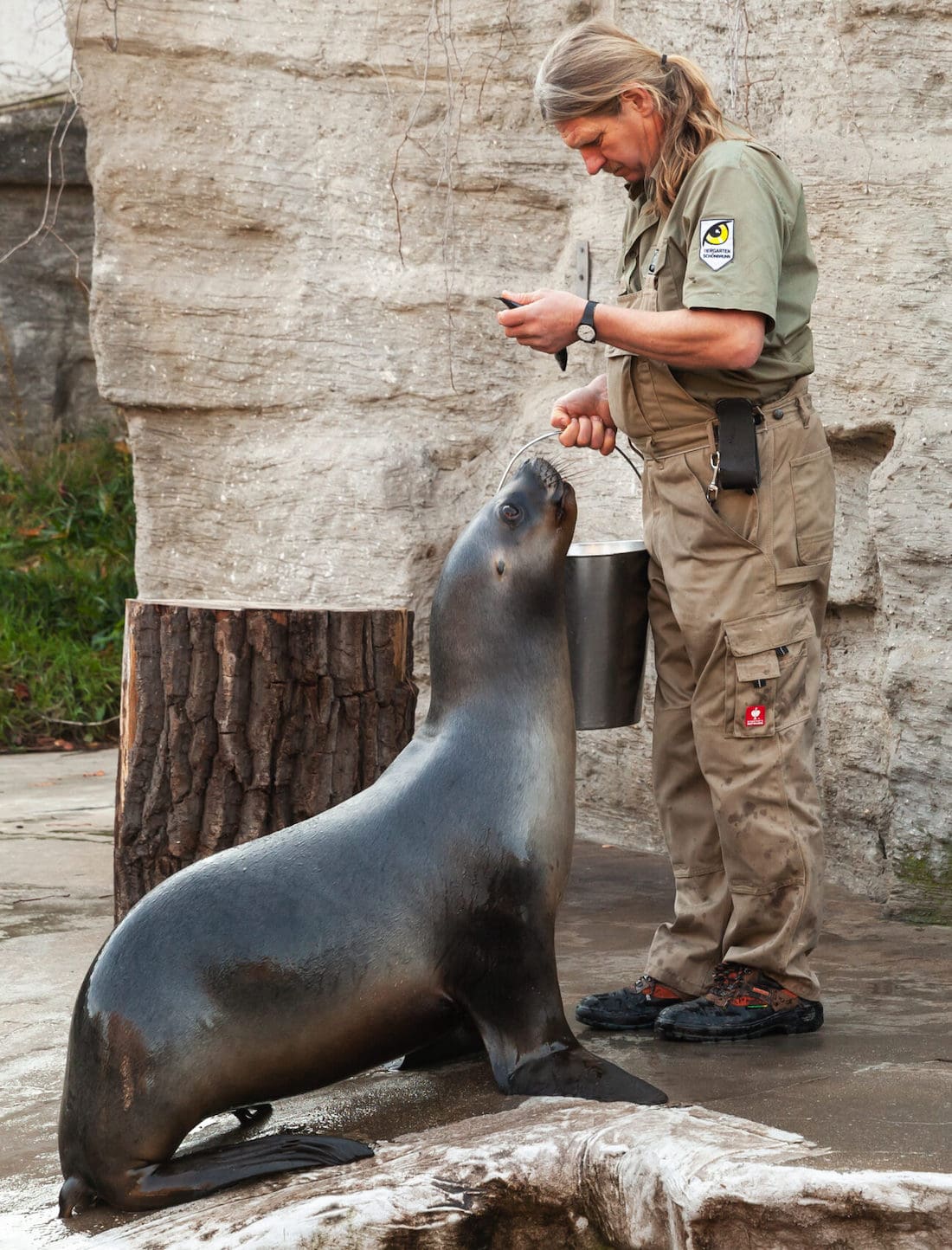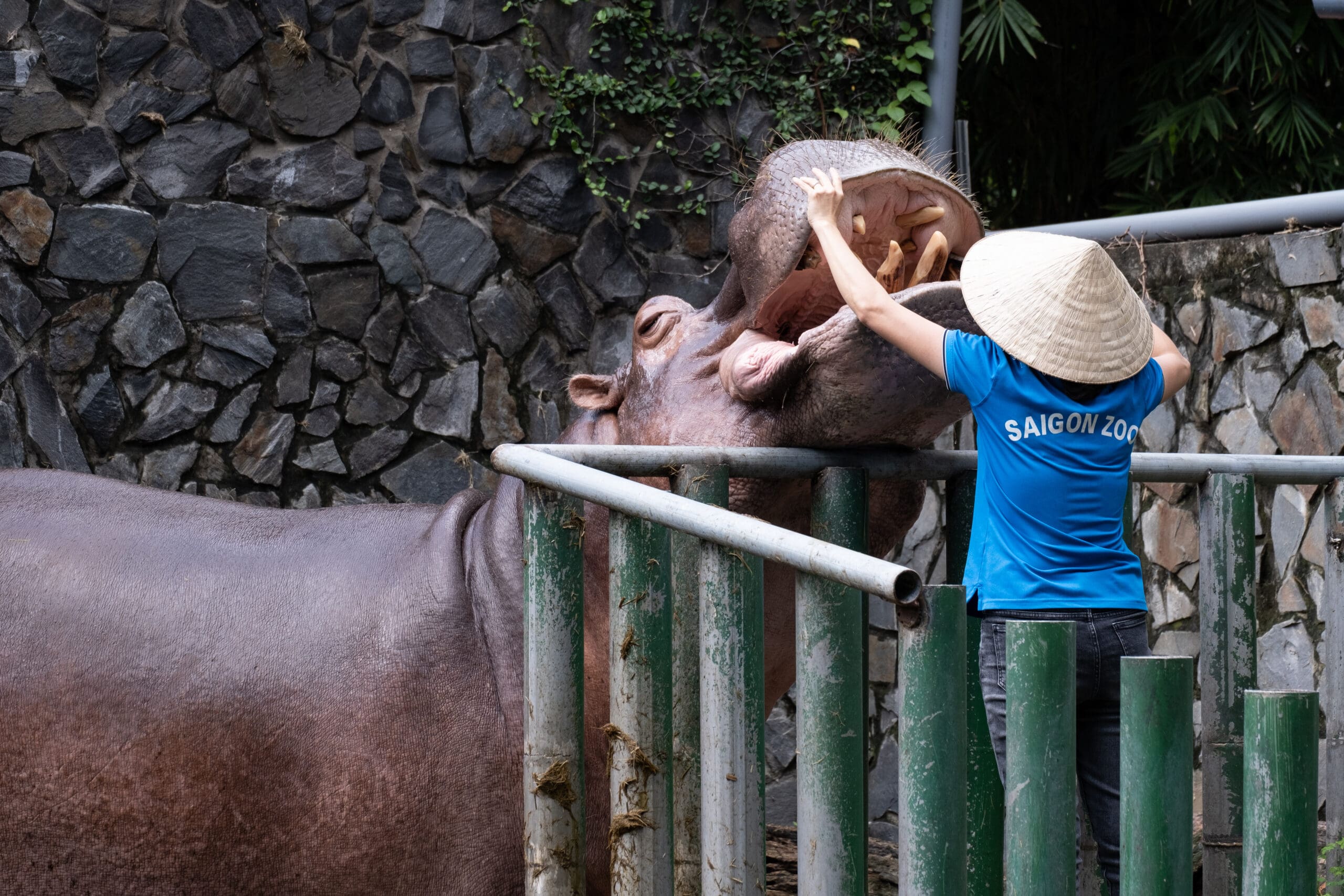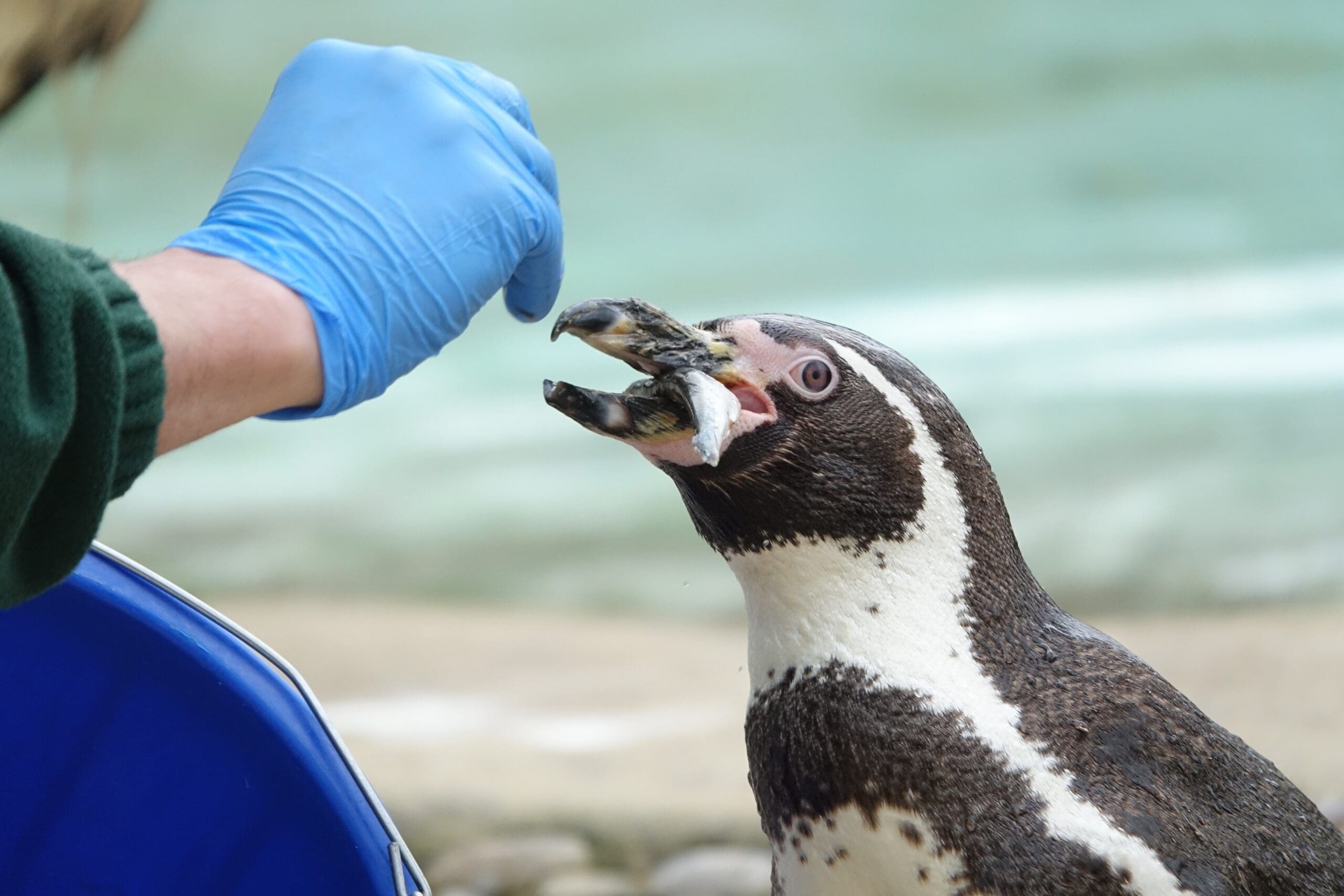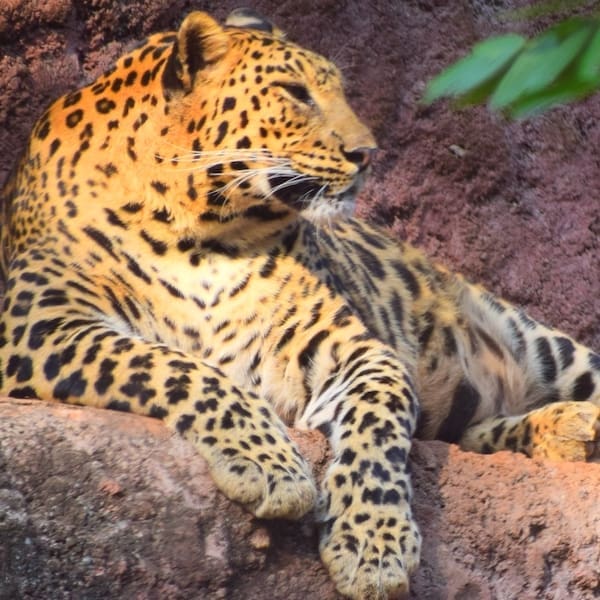How to become a Zookeeper
Everything you need to know about becoming a Zookeeper in 2025
If you’ve ever found yourself captivated by the majestic stride of a lion or the playful antics of a group of meerkats, then a career as a zookeeper might just be your calling. Zookeeping is more than just a job; it’s an opportunity to form deep connections with wildlife and play an essential role in conservation efforts. As caretakers, educators, and advocates for animals, zookeepers have the unique privilege of working closely with some of the most fascinating creatures on Earth.
This article will guide you through the steps to become a zookeeper, highlighting the skills you’ll need to succeed and offering insights into this rewarding profession. Whether you’re drawn by a lifelong passion for animals or inspired by the chance to make a difference, embarking on this journey could lead you to an incredibly fulfilling career path.
In this Zookeeper career guide
What does a Zookeeper do?
A zookeeper’s role is both fascinating and vital, offering a unique blend of responsibilities that ensure the well-being of animals and enrich the experience for visitors. At its core, zookeeping involves the daily care and maintenance of animals within a zoo setting. This includes feeding, cleaning enclosures, monitoring health, and providing enrichment activities to stimulate natural behaviours.
Zookeepers play a crucial part in conservation efforts by participating in breeding programmes for endangered species and educating the public about wildlife preservation. Their work often extends beyond direct animal care; they collaborate with veterinarians to manage health issues and contribute to research projects aimed at improving animal welfare.
Furthermore, zookeepers are passionate educators who engage with visitors through talks and demonstrations, fostering a deeper understanding of wildlife and inspiring future generations to appreciate and protect our planet’s biodiversity. A career as a zookeeper is not just about tending to animals; it’s about making a significant impact on conservation efforts worldwide.
Responsibilities of a Zookeeper
Being a zookeeper is not just about spending time with animals; it involves a diverse range of responsibilities that ensure the well-being and safety of both the animals and visitors. For those considering this rewarding career, understanding these duties is crucial.
Animal Care: The primary responsibility of a zookeeper is to provide daily care for the animals. This includes feeding, cleaning enclosures, and monitoring health. Zookeepers must be vigilant in observing any changes in behaviour or health that might indicate illness or distress.
Habitat Maintenance: Ensuring that animal habitats are clean, safe, and enriching is vital. To become a zookeeper, you would need to engage in habitat design and maintenance to mimic natural environments as closely as possible, promoting physical activity and mental stimulation for the animals.
Education: A significant aspect of a zookeeper’s role involves educating the public about wildlife conservation and animal behaviour. Through talks, demonstrations, or guided tours, zookeepers help foster an appreciation for wildlife among zoo visitors.
Record Keeping: Detailed records are maintained on each animal’s diet, health status, breeding patterns, and behaviours. These records are essential for ongoing research efforts and ensuring optimal care practices.
Collaboration with Veterinary Staff: Zookeepers work closely with veterinarians to implement health plans tailored to each species’ needs. This collaboration ensures prompt medical attention when necessary.
Conservation Efforts: Many zoos participate in breeding programmes aimed at preserving endangered species. Zookeepers play an active role in these initiatives by supporting breeding efforts and contributing valuable insights into animal behaviour.
In conclusion, being a zookeeper requires dedication beyond mere interest in animals; it demands commitment to their welfare through meticulous care routines and educational outreach – making it both a challenging yet immensely fulfilling profession.

Skills needed to become a Zookeeper
Embarking on a career as a zookeeper is both rewarding and challenging, requiring a unique set of skills to ensure the well-being of animals and the smooth operation of the zoo. Here’s a breakdown of essential skills needed to thrive in this fascinating field:
Animal Care Expertise: A deep understanding of animal behaviour, nutrition, and health is crucial. Zookeepers must be adept at recognising signs of illness or distress and know how to administer basic care.
Physical Fitness: The role demands physical strength and stamina, as it involves tasks such as cleaning enclosures, preparing food, and handling animals safely.
Observation Skills: Keen observational abilities are vital for monitoring animal behaviour closely to detect any changes that might indicate health issues or stress.
Communication Skills: Zookeepers often engage with the public, educating visitors about conservation efforts and animal welfare. Strong communication skills help convey important messages effectively.
Teamwork Abilities: Working in a zoo requires collaboration with other staff members, including veterinarians and educators, making teamwork an invaluable skill.
Problem-Solving Skills: Unexpected challenges can arise daily; therefore, being able to think on your feet and find solutions quickly is essential.
Passion for Conservation: A genuine passion for wildlife conservation drives many zookeepers to excel in their roles by advocating for sustainable practices within the zoo environment.
By honing these skills, aspiring zookeepers can contribute significantly to animal care while fostering an enriching experience for visitors eager to learn about our planet’s diverse species.
What qualifications do Zookeepers need?
Becoming a zookeeper is a rewarding career for those passionate about wildlife and conservation. However, it requires more than just a love for animals; specific qualifications and skills are essential to excel in this field.
Firstly, aspiring zookeepers should consider pursuing relevant educational qualifications. A degree in zoology, animal management, or biology provides a solid foundation of knowledge about animal behaviour, physiology, and conservation principles. Many zoos also value vocational qualifications like diplomas in animal care or management, which offer practical training alongside theoretical study.
In addition to formal education, hands-on experience is crucial. Volunteering or interning at zoos or wildlife sanctuaries can provide invaluable insights into the daily responsibilities of a zookeeper and help develop essential skills such as animal handling and husbandry techniques. This experience not only enhances your CV but also demonstrates your commitment to working with animals.
Furthermore, excellent communication skills are vital for zookeepers who often engage with the public through educational talks and tours. Being able to convey complex information about conservation efforts in an engaging manner can significantly enhance visitor experiences and raise awareness about important issues.
Lastly, physical fitness is an often-overlooked requirement but is crucial given the demanding nature of the job that involves heavy lifting and long hours on one’s feet.
By combining relevant education with practical experience and strong interpersonal skills, aspiring zookeepers can position themselves as strong candidates ready to contribute meaningfully to wildlife conservation efforts within zoo environments.
Work environment and hours
If you become a zookeeper, you need to realise it is not just a career; it’s a calling that requires dedication, passion, and an unwavering commitment to animal welfare. The work environment of a zookeeper is as diverse and dynamic as the animals they care for. From the early morning calls of exotic birds to the late-night checks on nocturnal creatures, each day presents new challenges and rewards.
Zookeepers typically work long hours that extend beyond the usual nine-to-five routine. Their days often begin at dawn with feeding routines, habitat cleaning, and health checks. These tasks require meticulous attention to detail and a deep understanding of each species’ unique needs. As custodians of wildlife, zookeepers must be adaptable – ready to respond to any situation that may arise, whether it’s an unexpected illness or behavioural change in an animal.
Despite the demanding schedule, many find immense satisfaction in their role. The opportunity to form bonds with animals and contribute to conservation efforts provides a profound sense of purpose. Moreover, working in such close proximity to nature offers an unparalleled experience that few other professions can match.
For those considering this rewarding path, it’s important to embrace both the challenges and joys it brings. Being a zookeeper is more than just a job; it’s about making a meaningful impact on wildlife conservation while nurturing one’s own passion for animals every single day.

How much do Zookeepers earn?
Zookeepers play a crucial role in the care and conservation of wildlife, ensuring that animals in captivity receive the best possible environment and attention. However, many people are curious about how much zookeepers earn for their dedicated work. In the UK, salaries for zookeepers can vary significantly based on experience, location, and the size of the zoo.
Entry-level positions often start at around £14,000 to £18,000 per year. As zookeepers gain experience and take on more responsibilities, such as specialised animal care or supervisory roles, their earnings can increase to between £20,000 and £25,000 annually. Senior positions or those involving management duties may see salaries rise even further.
While these figures might not seem particularly high compared to other professions requiring similar levels of dedication and expertise, it’s important to recognise that many zookeepers are driven by a passion for animals rather than financial gain.The opportunity to work closely with a diverse range of species and contribute to vital conservation efforts is often seen as invaluable by those in this field.
Moreover, there is potential for career progression within zoological institutions or related fields such as wildlife conservation organisations or educational outreach programmes.With additional qualifications or specialisations – such as veterinary skills or research expertise – zookeepers can enhance their prospects both financially and professionally.
While zookeeper salaries may not be among the highest within animal-related careers in the UK, they reflect a profession built on passion and commitment to animal welfare. For those who find joy in working with wildlife every day, this career offers rewards that extend far beyond monetary compensation.
Types of roles for Zookeepers
Zookeepers play a vital role in the care and conservation of wildlife, and their responsibilities extend far beyond simply feeding animals. There are several specialised roles within the field that cater to different aspects of animal welfare and zoo operations.
Firstly, there are general zookeepers who manage the daily care of diverse animal species. They ensure that enclosures are clean, food is prepared according to dietary needs, and animals exhibit healthy behaviours. Their work is crucial for maintaining the overall well-being of zoo inhabitants.
Then you have specialist keepers who focus on specific groups of animals such as reptiles, birds, or mammals. These experts possess in-depth knowledge about their assigned species and often participate in breeding programs aimed at conserving endangered populations.
Another important role is that of an education officer. Zookeepers in this position engage with visitors to educate them about wildlife conservation efforts and foster a deeper understanding of biodiversity. They play a key part in inspiring future generations to value and protect our natural world.
Additionally, some zookeepers take on research roles within zoos or collaborate with external organisations to study animal behaviour, health issues, or environmental impacts on wildlife. Their findings can contribute significantly to global conservation strategies.
Each type of zookeeper plays an indispensable part in ensuring that zoos remain places not just for entertainment but also for education and preservation. As we look towards a future where conservation becomes increasingly critical, the varied roles within zookeeping will undoubtedly continue to evolve and expand in importance.

Professional Development and Career Paths
Embarking on a career as a zookeeper is not only about nurturing a passion for animals but also about embracing continuous professional development to ensure both personal growth and excellence in animal care. Zookeepers have the opportunity to pursue diverse career paths that can lead to rewarding roles within the zoological community.
One of the most compelling aspects of this profession is the potential for specialisation. Zookeepers can choose to focus on specific types of animals, such as mammals, birds, reptiles, or even aquatic species. This specialisation allows them to deepen their expertise and become invaluable assets within their organisations.
Moreover, professional development opportunities abound through workshops, seminars, and courses offered by zoos and wildlife organisations. These educational experiences not only enhance practical skills but also provide insights into the latest advancements in animal care and conservation efforts.
Aspiring zookeepers should also consider gaining experience in related fields such as veterinary science or conservation biology. Such cross-disciplinary knowledge can pave the way for roles like zoo curators or conservation project managers.
In conclusion, while being a zookeeper requires dedication and hard work, it offers numerous avenues for career advancement through continuous learning and skill enhancement. By investing in their professional development, zookeepers can significantly impact both their careers and the welfare of the animals they cherish.



